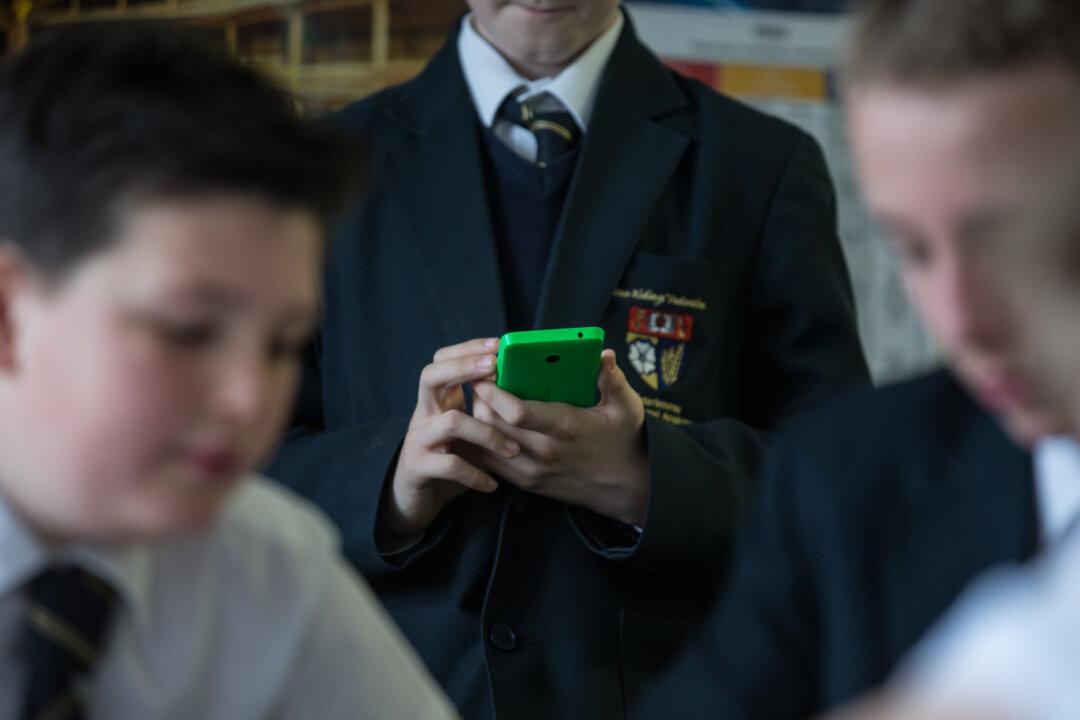The government says recent official data showed 29 percent of secondary school pupils reported mobile phones being used without permission.
Paul Whiteman, general secretary of the National Association of Head Teachers, said at the time he was concerned, “a blanket ban won’t work for all schools” and he added, “We query whether this new policy has actually been sense checked at all with the profession.”
On Monday, Geoff Barton, the general secretary of the Association of School and College Leaders, said there was no evidence the “compulsive use” of devices was happening in schools.
He said, “Most schools already forbid the use of mobile phones during the school day or allow their use only in limited and stipulated circumstances.”
“We have lost count of the number of times that ministers have now announced a crackdown on mobile phones in schools. It is a non-policy for a non-problem,” he added.
Mr. Barton added, “The government would be far better off putting its energies into bringing to heel the online platforms via which children are able to access disturbing and extreme content.”
Since Brianna’s killers, Scarlett Jenkinson and Eddie Ratcliffe, were sentenced last month, Ms. Ghey has been campaigning for children under 16 to be banned from using social media and for smartphones to be disabled.
At the age of 14, Jenkinson had downloaded an app to access the so-called dark web and watch torture and snuff videos in “red rooms.”
In her foreword to the guidance, Ms. Keegan wrote, “Mobile phones risk unnecessary distraction, disruption and diversion. One in three secondary school pupils report that mobile phones are used in most lessons without permission.”
‘One in 5 Suffer Online Bullying’
Ms. Keegan added, “We owe it to our children to do what we can to remove distractions and enable them to be fully present and engaged in the classroom. We also owe it to our pupils to keep them safe at school. One in five pupils have experienced bullying online.”The non-statutory guidance advises head teachers on how to ban the use of phones.
It says, “Schools should develop a mobile phone policy that prohibits the use of mobile phones and other smart technology with similar functionality to mobile phones ... throughout the school day, including during lessons, the time between lessons, breaktimes and lunchtime.”
It also suggests staff could search pupils and their bags for mobile phones.
But it is currently up to head teachers in England to decide their own school policy on mobile phones.
In a statement, Ms. Keegan said, “We are giving our hard-working teachers the tools to take action to help improve behaviour and to allow them to do what they do best, teach.”
Tom Bennet, who advises the Department for Education on behaviour, said, “Mobile phones may be ubiquitous, but we have a strong and growing understanding of how damaging they can be for a child’s social and educational development.”
“It’s the least advantaged who suffer most. Many schools already have some kind of policy on phones, but this guidance provides a clear steer for everyone, including parents, about what’s right and what’s not for the wellbeing of the child,” he added.







